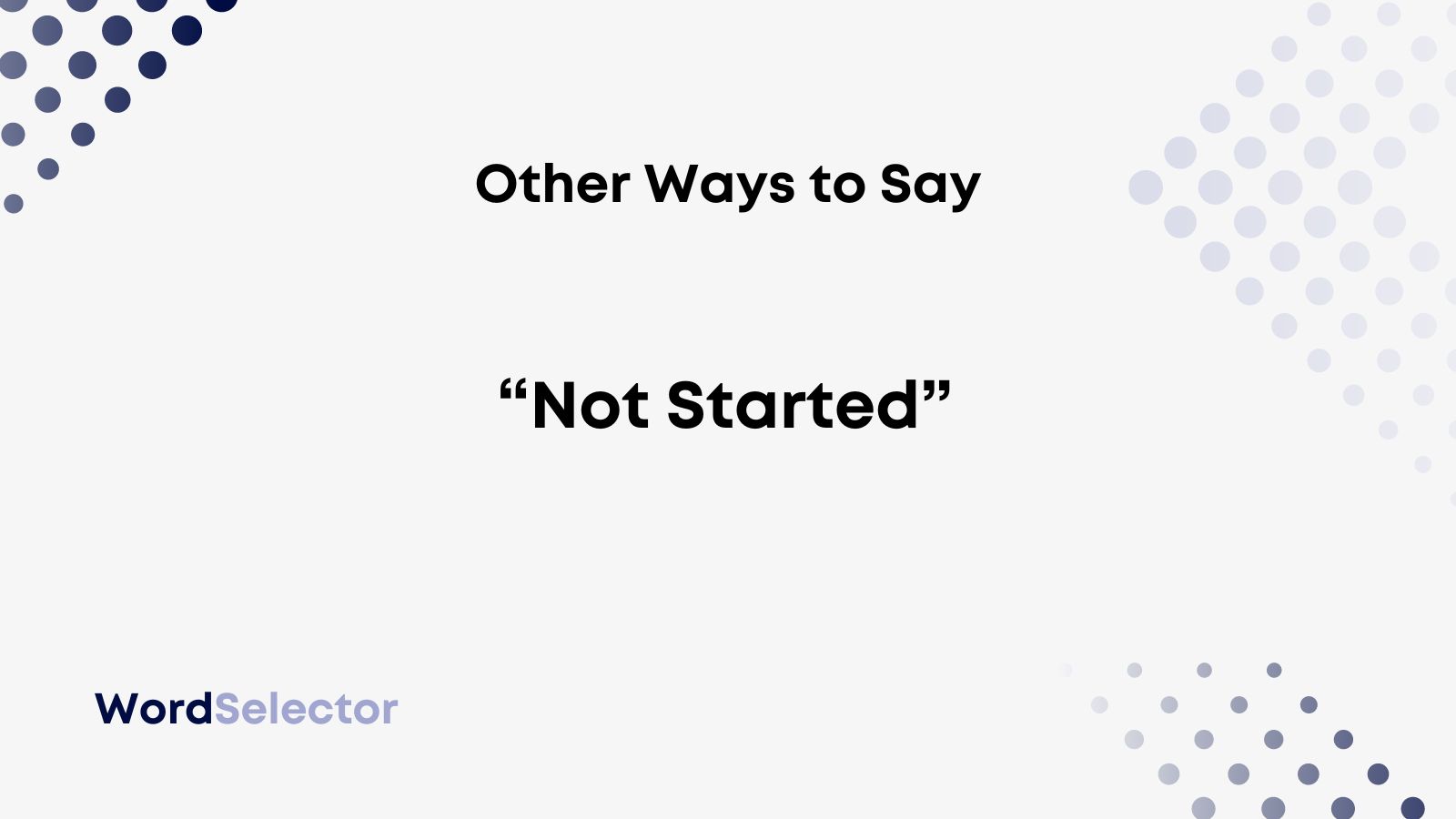Are you looking for a better word for “not started”? While the phrase has its uses, there are certainly better options out there.
This article has gathered some of the best synonyms to help you. We’ll share a few for different contexts that might help you.
Other Ways to Say “Not Started”
- Yet to begin
- Haven’t gotten around to it
- Haven’t managed to yet
- Yet to start
- Haven’t started
- I’ll get around to it
- I haven’t sorted it yet
- Bear with me
- I’m still working on it
- I haven’t done much
- Let me work on it
- I’ll tell you when I start
KEY TAKEAWAYS
- “Not started” is a simple phrase showing you haven’t begun a task yet.
- “Yet to begin” is a professional phrase that shows you haven’t begun to work on a task.
- “Haven’t gotten around to it” is great in informal contexts.
You can use any of these alternatives instead of “not started.” However, there are some that work better than others. Keep reading to learn more about them and how to use them.
Or perhaps the final section is what you’re looking for. We’ve explained whether “not started” is correct and acceptable in different situations.
Yet to Begin (Formal)
“Yet to begin” is a great formal alternative for “not started.” You can use it when you haven’t gotten around to starting a task.
“Begin” is synonymous with “started” here. Also, using “yet to” instead of “not” is much more professional and respectful. Most readers will prefer your language choice when sending them business emails.
You may have luck with the phrase when letting your boss know that you haven’t started working on a project. It implies that you have “yet” to do it, but you will get around to it soon.
You should certainly use “yet to begin” over “not started” in formal situations. It’s much more polite. If you do email your boss, they’ll be more appreciative if you say “yet to begin” because it implies you’ll start soon, whereas “not started” implies you may never start.
Check out the examples below to see how to use it:
Dear Pedro,
I have yet to begin the assignment. I will let you know when I get the time to start working on it.
Yours,
Deidre
She is yet to begin the project, so we must wait for her. We cannot do this without her input.
Haven’t Gotten Around to It (Informal)
“Haven’t gotten around to it” is a great informal synonym. You can use it when you have yet to start a project or task but intend to start soon.
You might want to use the phrase when emailing a coworker. If you’re supposed to work on a project together, you can let them know you “haven’t gotten around to” your part yet. However, it still implies you’ll get to work soon.
However, you should stick to conversational formats when using the phrase. It’s not a professional phrase, meaning it does not work well when emailing bosses or clients. “Not started” might be better formally, but you’ll have more luck with a more professional synonym.
The following examples should explain more about it:
Hey George,
I’m afraid I haven’t gotten around to it. Please bear with me while I sort out some of the issues I’m having.
All the best,
Kirk
I haven’t gotten around to it yet. I’m still working on a few other things that take priority.
Is It Correct to Say “Not Started”?
“Not started” is correct and acceptable. It’s a very simple phrase to show someone you haven’t started working on a task yet.
It’s wise to use a phrase like this when someone asks you for an update. You can say you have “not started” to let them know that you don’t have any relevant updates or information to share at the moment.
Check out these variations that you might also use:
- Not yet started
- Not started yet
The placement of “yet” is not important to the meaning. It changes the emphasis of the phrase.
If you place “yet” earlier than “started,” it shows you’re more likely to do a task soon.
If “yet” comes after “started,” it implies you are unsure when you might start something.
You should bookmark this page to remind yourself of the best alternatives for “not started.” That way, you’ll always have some good options available to mix up your writing.

